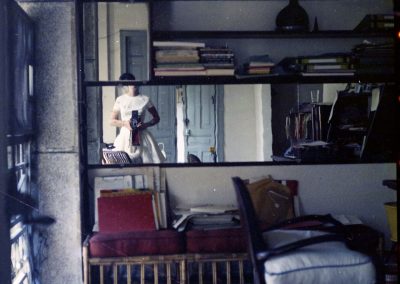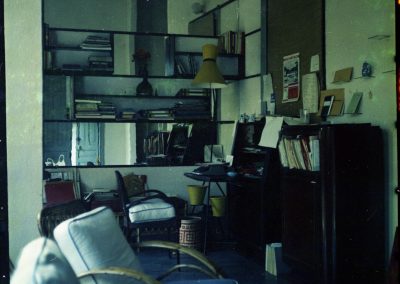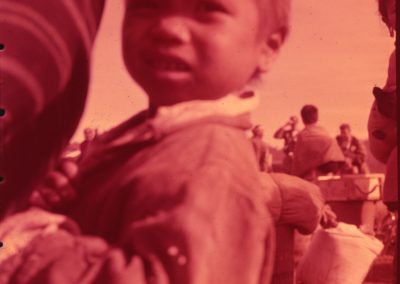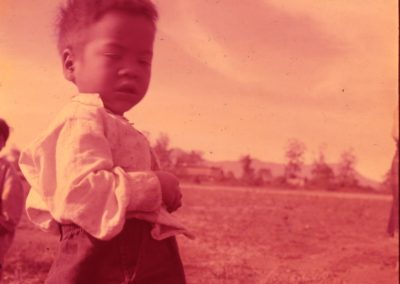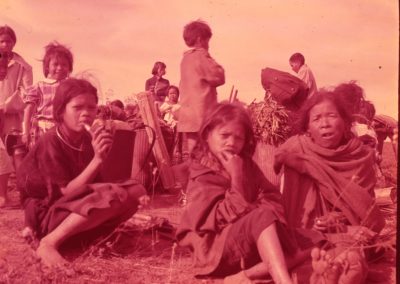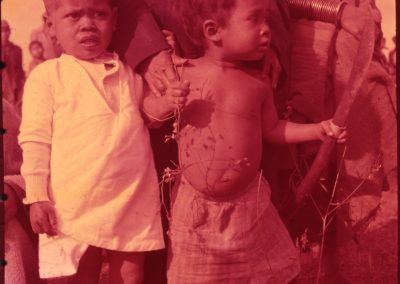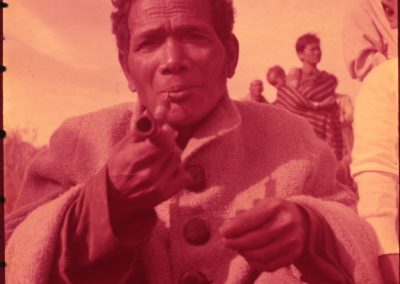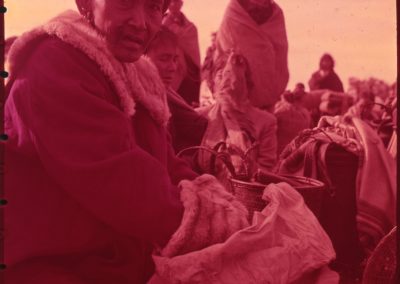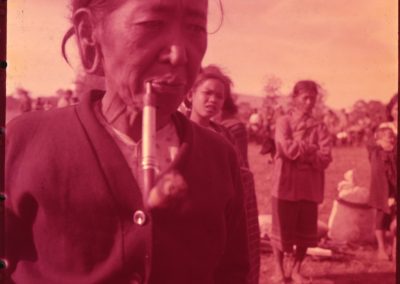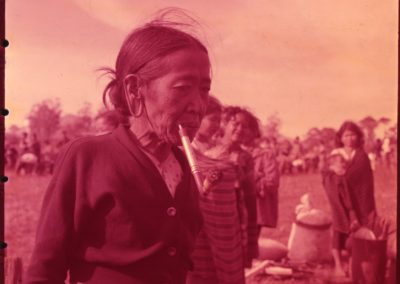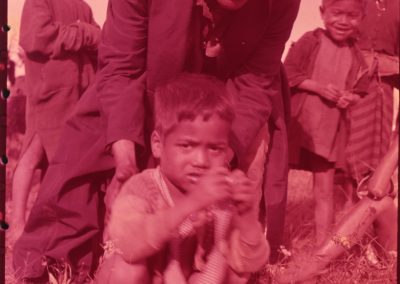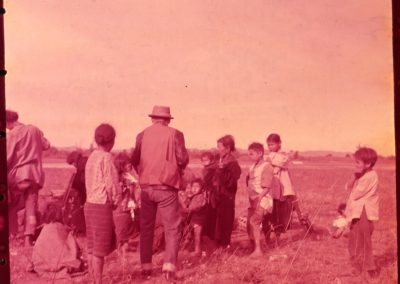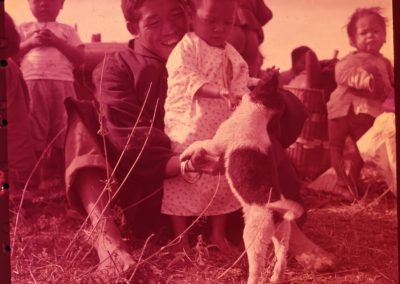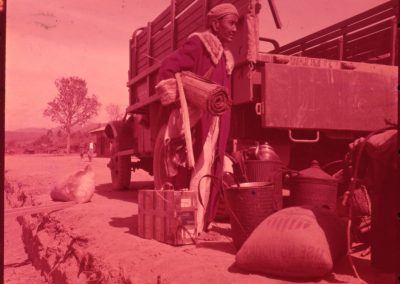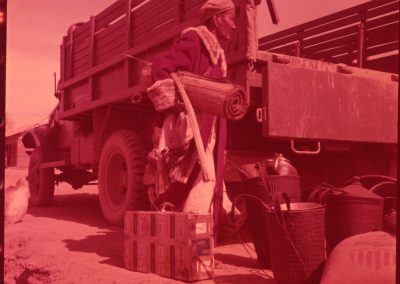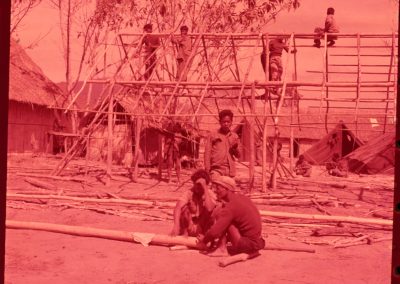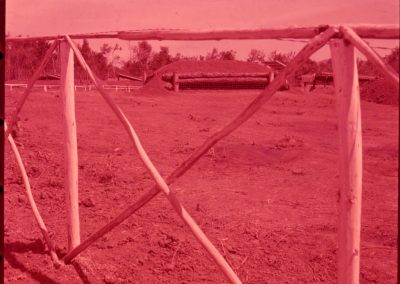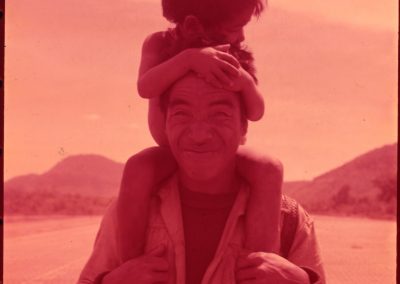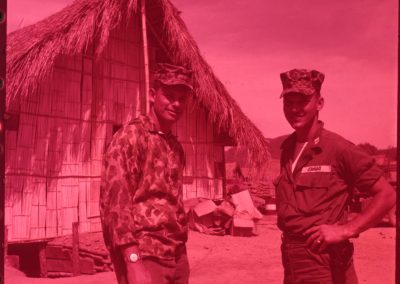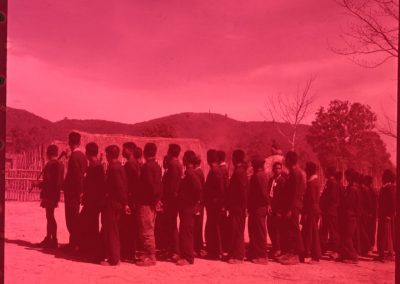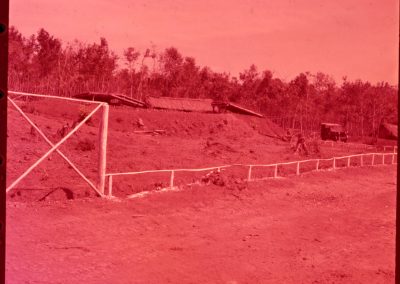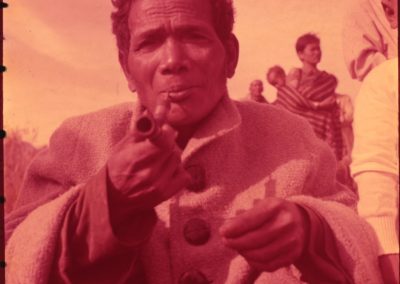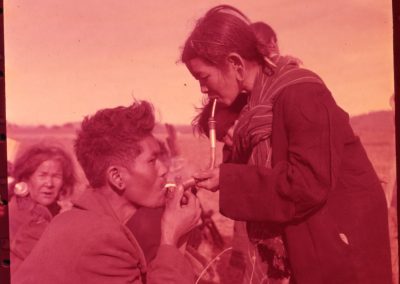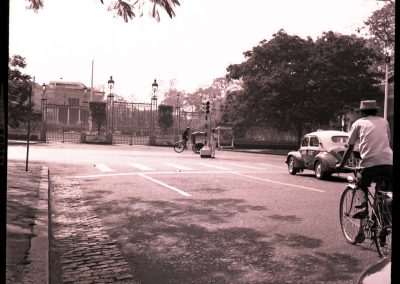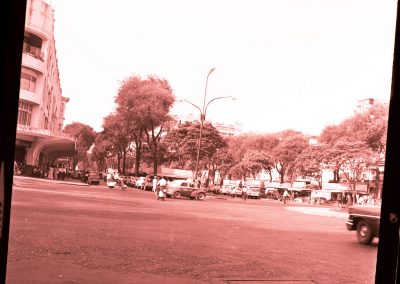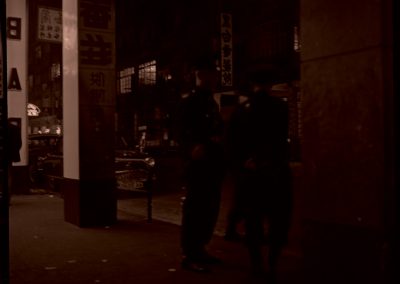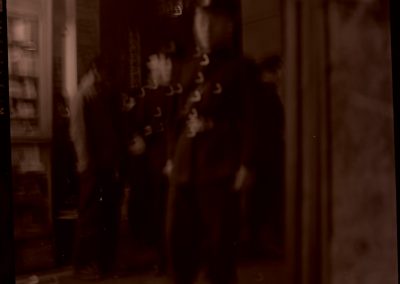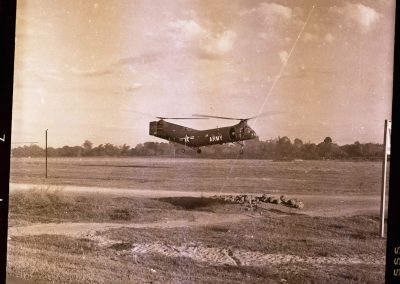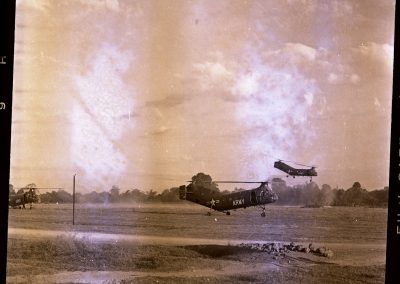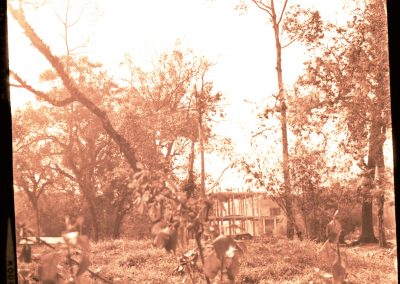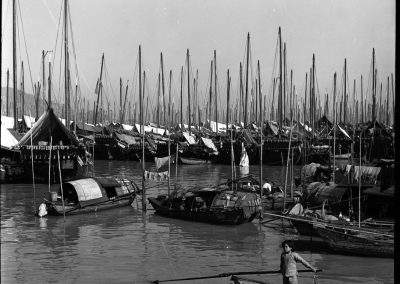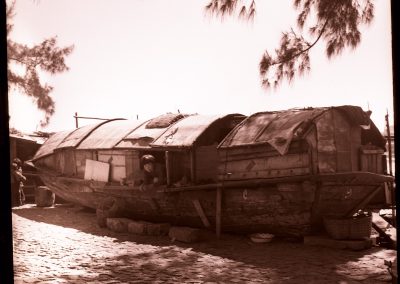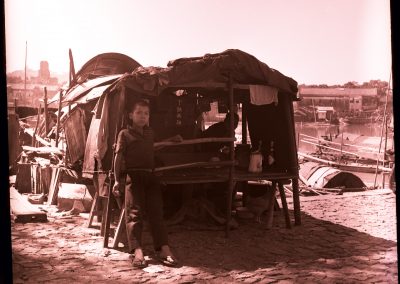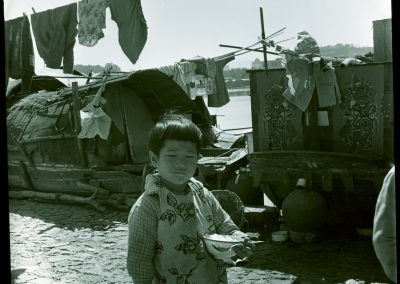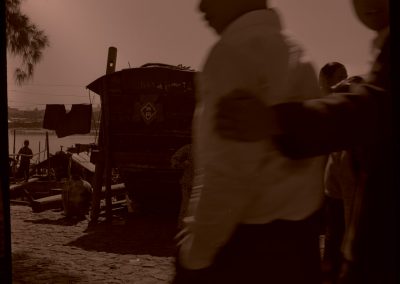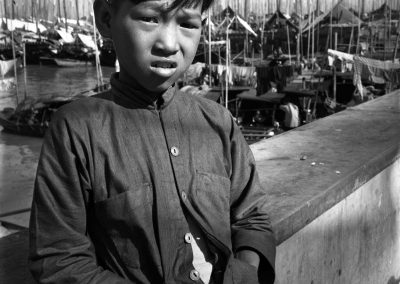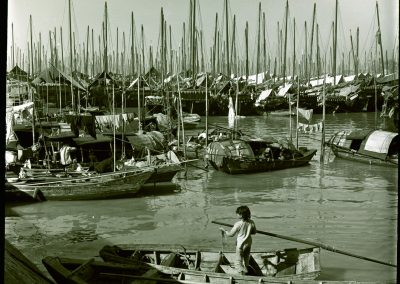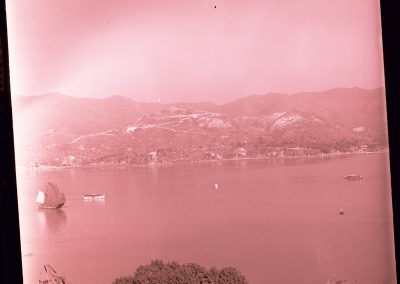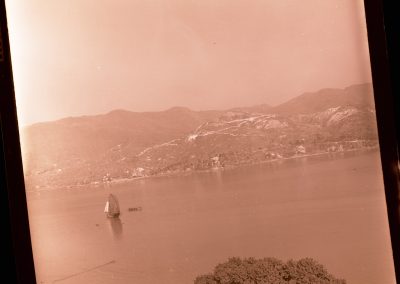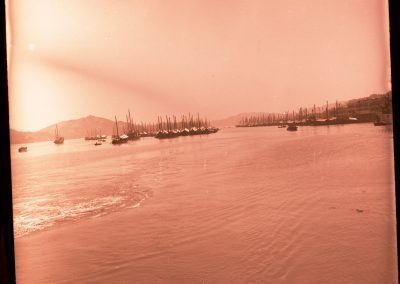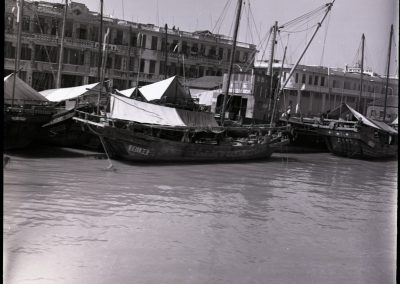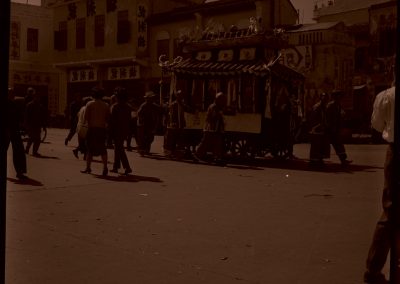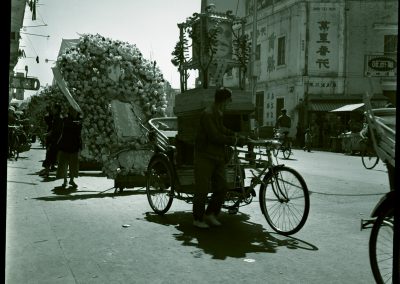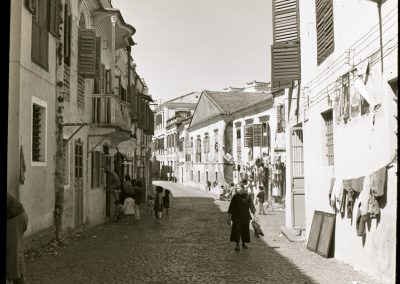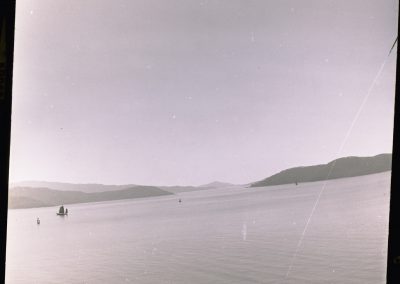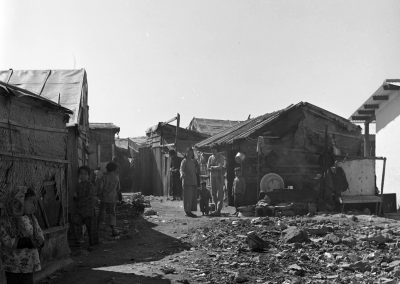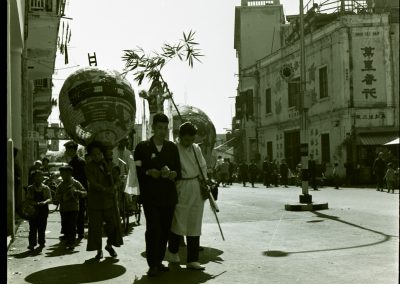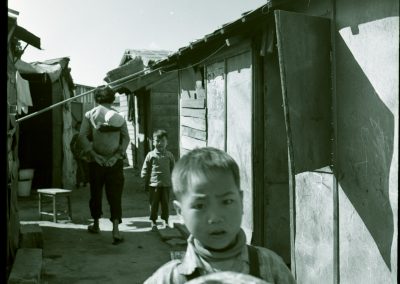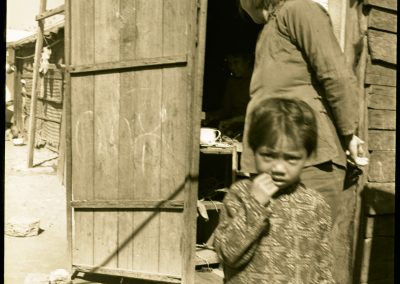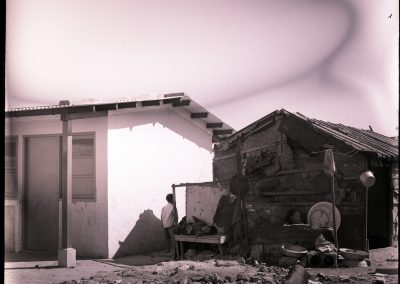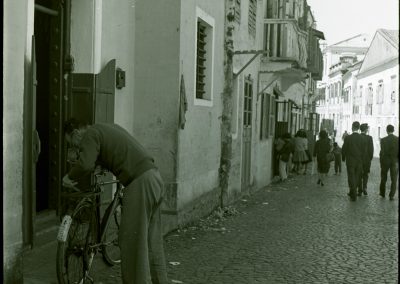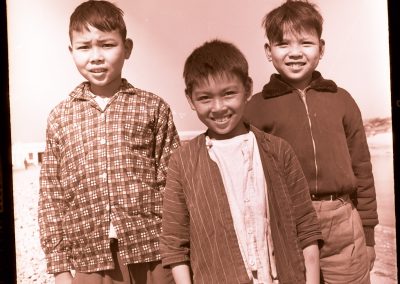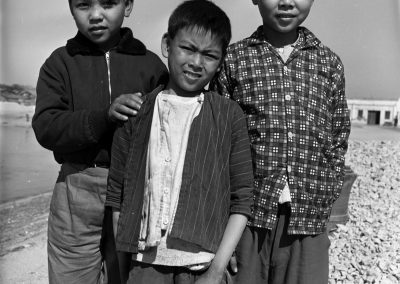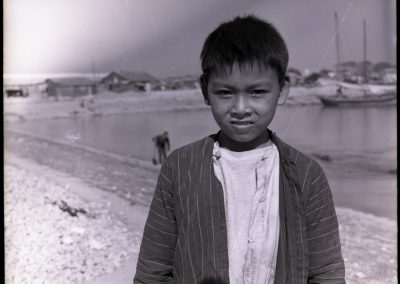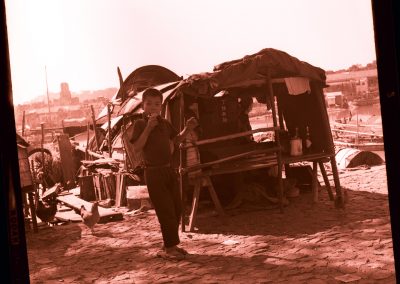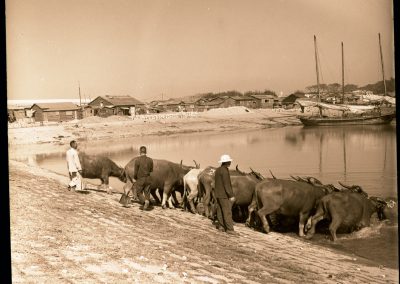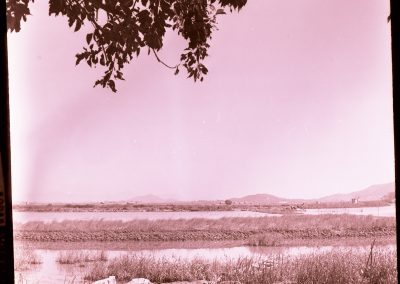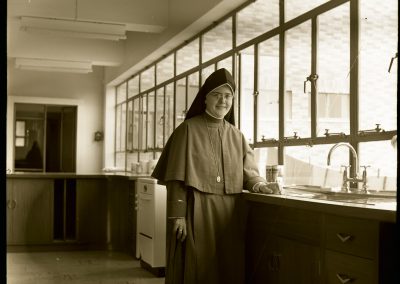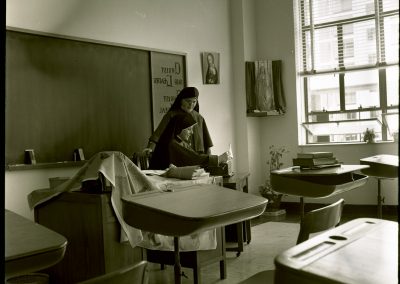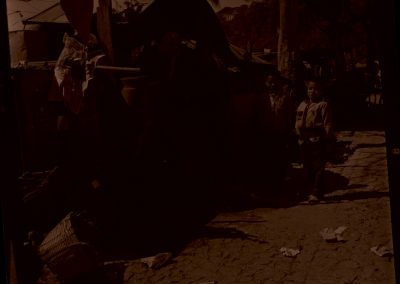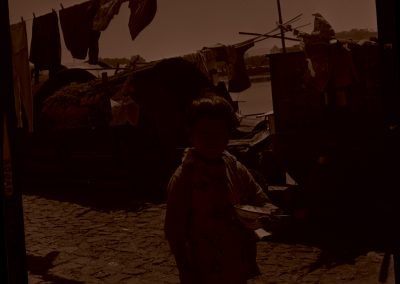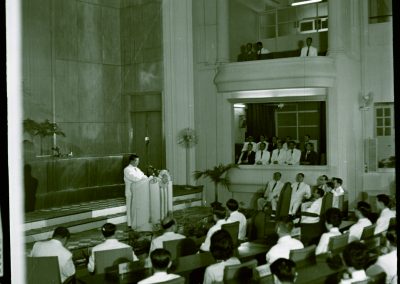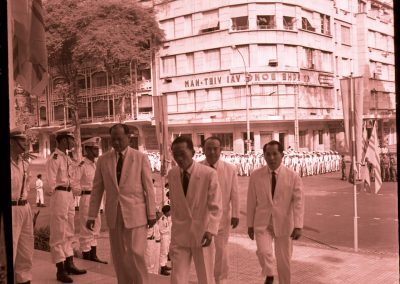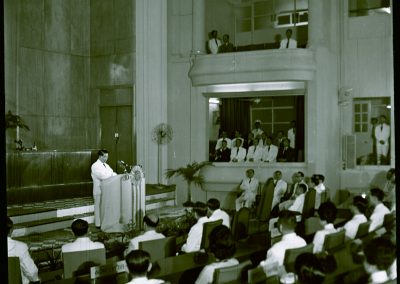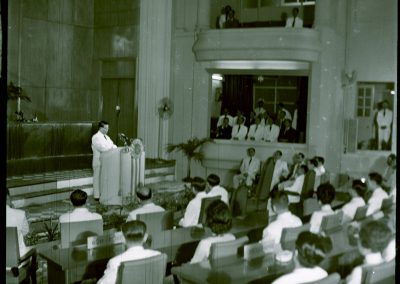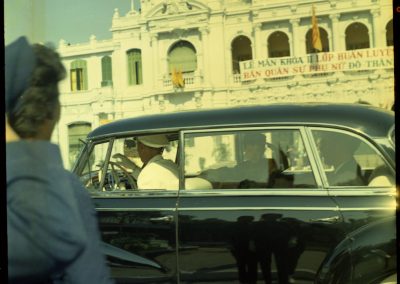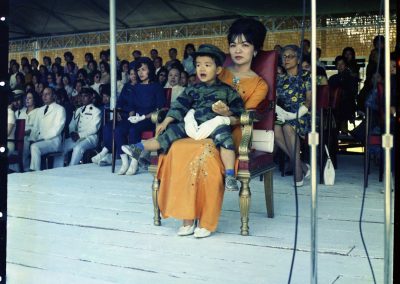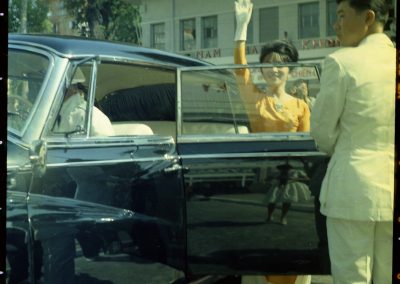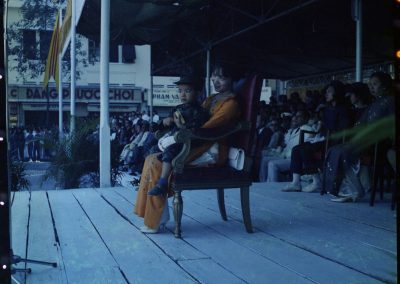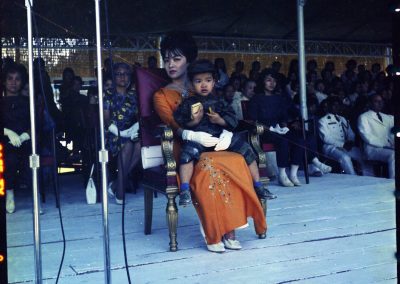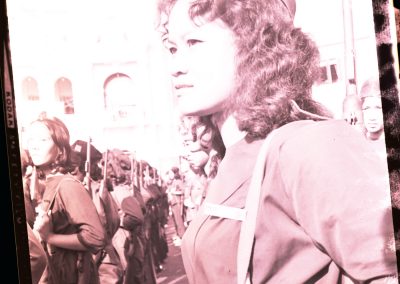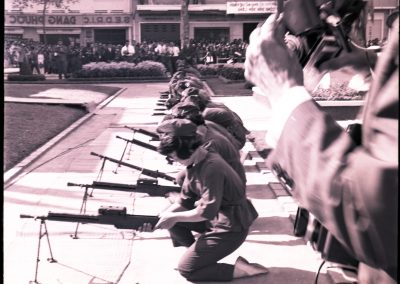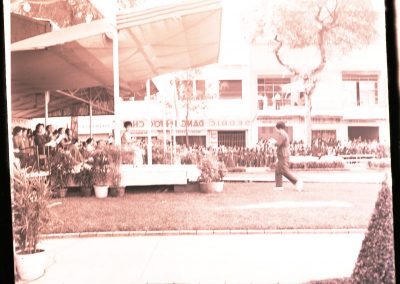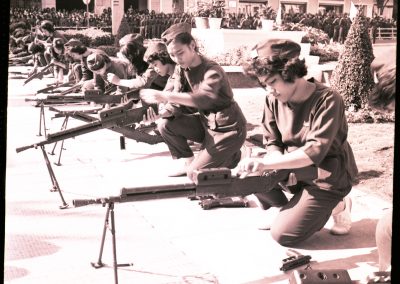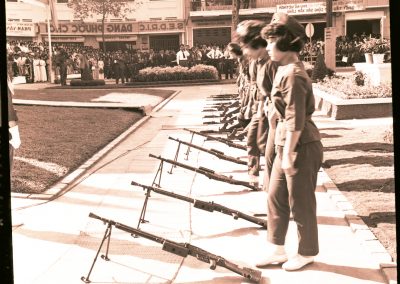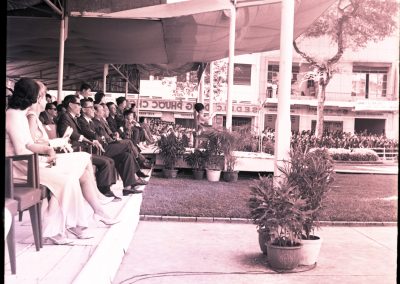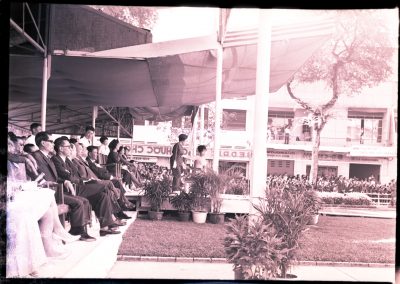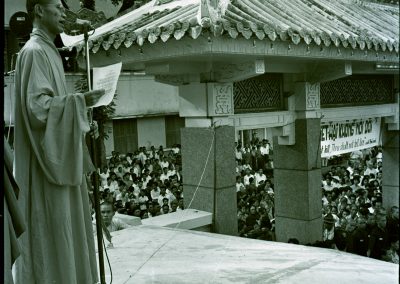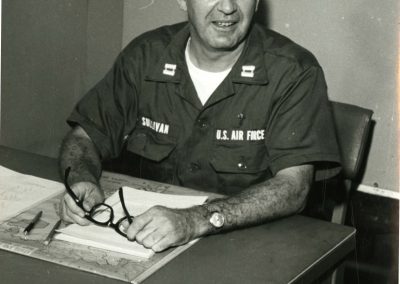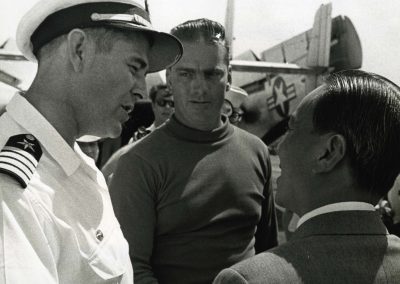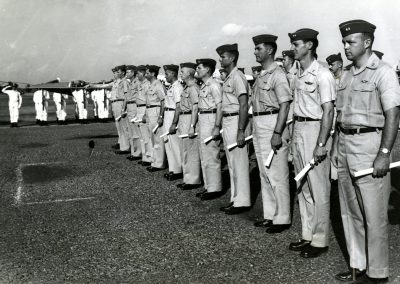The Beverly Deepe Keever Collection
Photos by Beverly Deepe Keever, 1963
Bev’s Apartment
An Lac Airlift
An Lac Airlift (363-0845)
“Montagnard – An Lac Airlift – Jan ’63”- “Photo of a young child. Behind him are other children and villagers.”
An Lac Airlift (363-0846)
“Montagnard – An Lac Airlift – Jan ’63” – “Photo of a little boy standing in field.”
An Lac Airlift (363-0847)
“Montagnard – An Lac Airlift – Jan ’63” – “Children and adults sitting/standing while their photo is taken.”
An Lac Airlift (363-0848)
“Montagnard – An Lac Airlift – Jan ’63” – “Two young children stand front of an adult.”
An Lac Airlift (363-0850)
“Montagnard – An Lac Airlift – Jan ’63” – “Vietnamese people going through belongings.”
An Lac Airlift (363-0851)
“Montagnard – An Lac Airlift – Jan ’63” – “Vietnamese woman smoking a pipe as she walks near photographer.”
An Lac Airlift (363-0852)
“Montagnard – An Lac Airlift – Jan ’63” – “Vietnamese woman smoking a pipe as she walks near photographer.”
An Lac Airlift (363-0853)
“Montagnard – An Lac Airlift – Jan ’63” – “Small Vietnamese child plays with blade of grass as adult attempts to pick hi up. Other children observing from background.”
An Lac Airlift (363-0854)
“Montagnard – An Lac Airlift – Jan ’63” – “Group of Vietnamese people in field.”
An Lac Airlift (363-0856)
“Montagnard – An Lac Airlift – Jan ’63” – “A young Vietnamese child pets a puppy while and adult and other young children look on.”
An Lac Airlift (363-0857)
“Montagnard – An Lac Airlift – Jan ’63” – “Vietnamese man holds a mat as he stands next a truck and other supplies.”
An Lac Airlift (363-0858)
“Montagnard – An Lac Airlift – Jan ’63” – “Vietnamese man holds a mat as he stands next a truck and other supplies.”
An Lac Airlift (3663-0859)
“Montagnard – An Lac Airlift – Jan ’63” – “Vietnamese men work on bamboo building frame.”
An Lac Airlift (363-0860)
“Montagnard – An Lac Airlift – Jan ’63” – “Newly built fence with field in the background.”
An Lac Airlift (363-0861)
“Montagnard – An Lac Airlift – Jan ’63” – “Vietnamese man hold young child on his shoulders.”
An Lac Airlift (363-0863)
“Montagnard – An Lac Airlift – Jan ’63” “Soldier by the name Daines smiles for photo with another soldier in photo.”
An Lac Airlift (363-0864)
“Montagnard – An Lac Airlift – Jan ’63” – “Line of men wearing long sleeves or jackets with backs to the camera.”
An Lac Airlift (363-0865)
“Montagnard – An Lac Airlift – Jan ’63” – “Photo of fence lining road or pathway.”
An Lac Airlift (363-0849)
“Montagnard – An Lac Airlift – Jan ’63” – “Vietnamese man smoking from pipe gets his photo taken.”
An Lac Airlift (363-0855)
“Montagnard – An Lac Airlift – Jan ’63” – “Vietnamese man and woman share a pipe.”
Ca Mau
Vietnamese Street (363-0929)
“Ca Mau – MAAG – Jan ’63” ; “A Ca Mau street lined with cars and people.”
Vietnamese Street (363-0930)
“Ca Mau – MAAG – Jan ’63” ; “A Ca Mau steet with a truck parked on the sidewalk as some people look on from distance.”
Vietnamese Street (363-0931)
“Ca Mau – MAAG – Jan ’63” ; “A Ca Mau street. A man is directing traffic in the middle as bikes and cars surround him on the street.”
Vietnamese Street (363-0932)
“Ca Mau – MAAG – Jan ’63” ; “A Ca Mau street. A man is directing traffic in the middle as bikes and cars surround him on the street.”
Vietnamese Street (363-0933)
“Ca Mau – MAAG – Jan ’63” ; “A Ca Mau street. A stoplight is seen in the left hand corner and cars driving are in the middle right of the photograph.”
Vietnamese Street (363-0935)
“Ca Mau – MAAG – Jan ’63” ; “A Ca Mau Street. A man on a moped passes the camera in the foreground.”
Macau
*Photos 939-987 are undated
Soldiers (363-0909)
“NV-HK – Macau – Not For Pub – Some Good Ones”; Not For Publication – “Two men stand near the street.”
Soldiers (363-0910)
“NV-HK – Macau – Not For Pub – Some Good Ones” ; Not For Publication – “Men standing.” (blurry)
Helicopter (363-0911)
“NV-HK – Macau – Not For Pub – Some Good Ones” ; Not For Publication – “An Army helicopter is hovering above the ground.”
Helicopter (363-0912)
“NV-HK – Macau – Not For Pub – Some Good Ones” ; Not For Publication – “An Army helicopter is hovering above the ground as other helicopters are seen in the background.”
Boats (363-00940)
A young boy is standing in a boat in the foreground, other boats are in the water surrounding him in the background
Land Boat (363-00942)
A young boy is standing in front of a structure, another boy’s silhouette in the background.
Street (363-00952)
A Chinese man leans on his bike as a group of children are seen in the background further down the road.
Street (363-00955)
A Chinese woman walks towards the foreground while several other Vietnamese folks are in the background.
Landscape (363-00962)
A photo is taken from a balcony of a body of water. Some boats visible in the background.
Child (363-00965)
A young boy is in the foreground with others walking away from camera in the background.
Street (363-00969)
A man is leaning against his bike as several others pass him by in the background.
Children (363-00971)
A young children is facing some wooden buildings as two men are conversing to her right.
Cao Lanh
Helicopter (363-0901)
“Cao Lanh – M:VED Operation – etc.”; “A young Vietnamese soldier is walking next to a helicopter.”
Soldiers (363-0902)
“Cao Lanh – M:VED Operation – etc.” ; – “Two soldiers speak to one another around a table.”
Landscape (363-0903)
“Cao Lanh – M:VED Operation – etc.”; – “A landscape shot of soldiers in a field.”
Helicopter (363-0904)
“Cao Lanh – M:VED Operation – etc.” ; – “Several soldiers stand near the entrance of a helicopter.”
Children (363-0906)
“Cao Lanh – M:VED Operation – etc.” ; – “A bright shot of a group of Vietnamese children.”
Helicopter (363-0907)
“Cao Lanh – M:VED Operation – etc.” ; – “A bright shot of soldiers and a helicopter.”
Praying
Undergirding the Buddhist grievances more fundamentally was the French-imposed Decree No. 10, which Diem had retained, labeling Buddhism as an association rather than a religion, rendering its followers as second-class and limiting their authority, power, and rights compared to those of Catholics.
Women Praying (363-03326)
Three women are seen praying, the woman in the middle is holding some type of book
MDO Addressing National Assembly
Men Walking Up Stairs (363-1152)
“MDO Addressing Nat’l Ass. Oct 7, 1963” ; “Two men walk up a flight of stairs. Soldiers stand at attention in the background.”
Man Speaking (363-1153)
“MDO Addressing Nat’l Ass. Oct 7, 1963” ; “A man is standing at the podium as a crowd listens on.”
Man Speaking (363-1154)
“MDO Addressing Nat’l Ass. Oct 7, 1963” ; “A man is standing at the podium as a crowd listens on.”
Man Speaking (363-1155)
“MDO Addressing Nat’l Ass. Oct 7, 1963” ; “A man is standing at the podium as a crowd listens on.”
Men Walking into Building (363-1156)
“MDO Addressing Nat’l Ass. Oct 7, 1963” ; “A group of men are walking into a building. Many men in uniform are seen standing on the street in the background.”
Man Speaking (363-1157)
“MDO Addressing Nat’l Ass. Oct 7, 1963” ; “A man is standing at the podium as a crowd listens on.”
Man Speaking (363-1158)
“MDO Addressing Nat’l Ass. Oct 7, 1963” ; “A man is standing at the podium as a crowd listens on.”
Man Speaking (363-1159)
“MDO Addressing Nat’l Ass. Oct 7, 1963” ; “A man is standing at the podium as a crowd listens on.”
Man Speaking (363-1161)
“MDO Addressing Nat’l Ass. Oct 7, 1963” ; “A man is standing at the podium as a crowd listens on.”
Man Speaking (363-1162)
“MDO Addressing Nat’l Ass. Oct 7, 1963” ; “A man is standing at the podium as a crowd listens on.”
Man Speaking (363-1163)
“MDO Addressing Nat’l Ass. Oct 7, 1963” ; “A man is standing at the podium as a crowd listens on.”
Man Speaking (363-1164)
“MDO Addressing Nat’l Ass. Oct 7, 1963” ; “A man is standing at the podium as a crowd listens on.”
Delta Heliborne
Delta Heliborne (363-0838)
“Delta Heliborne DPN – Mar ’63” “A small hut roofed with long grass. Cow legs can be seen through the legs of the hut.”
Delta Heliborne (363-0839)
“Delta Heliborne DPN – Mar ’63” “A group of soldiers gathering in a field of long grass and palm trees. Photo taken through the skids of a helicopter.”
Delta Heliborne (363-0840)
“Delta Heliborne DPN – Mar ’63” “A group of soldiers gathering in a field of long grass and palm trees. Photo taken through the skids of a helicopter.”
Delta Heliborne (363-0841)
“Delta Heliborne DPN – Mar ’63” “A small hut roofed with long grass. Cow legs can be seen through the legs of the hut. Another cow approaches the hut.”
Above Vietnam (363-0842)
“Delta Heliborne DPN – Mar ’63” “An aerial view of the ground. Some of the plains appear to be flooded.”
Delta Heliborne (363-0843)
“Delta Heliborne DPN – Mar ’63” “A group of soldiers running through an uneven field of tall grass.”
Madame Nhu
Pre Troung Sisters Day (363-00825)
“Madame Nhu (Tran Le Xuan)” – 28 Feb ’63 – Pre Troung Sisters Day” “A black car parked outside of the City Hall. Inside the car, a young boy in a soldier’s outfit salutes the three women waiting for him.”
Madame Nhu (363-0828)
“Madame Nhu (Tran Le Xuan)” – 28 Feb ’63 – Pre Troung Sisters Day” “Madame Nhu sitting on a stage with her son, wearing a soldier’s outfit, in her lap. A crowd of people sit behind her.”
Pre Troung Sisters Day (363-0829)
“Madame Nhu (Tran Le Xuan)” – 28 Feb ’63 – Pre Troung Sisters Day” “Madame Nhu waving as she exits her black car. Keever is reflected in the door of the car.”
Pre Troung Sisters Day (363-0830)
“Madame Nhu (Tran Le Xuan)” – 28 Feb ’63 – Pre Troung Sisters Day” “A black car parked outside of the City Hall. A man in white is opening (or closing) the back door while others look on. Inside the car is a man smiling at somone unseen.”
Pre Troung Sisters Day (363-0831)
“Madame Nhu (Tran Le Xuan)” – 28 Feb ’63 – Pre Troung Sisters Day” “Madame Nhu sitting on a stage with her son, wearing a soldier’s outfit, in her lap. A crowd of people sit behind her.”
Pre Troung Sisters Day (363-0832)
“Madame Nhu (Tran Le Xuan)” – 28 Feb ’63 – Pre Troung Sisters Day” “Madame Nhu sitting on a stage with her son, wearing a soldier’s outfit, in her lap. A crowd of people sit behind her.”
Pre Troung Sisters Day (363-0833)
“Madame Nhu (Tran Le Xuan)” – 28 Feb ’63 – Pre Troung Sisters Day” “Madame Nhu sitting on a stage with her son, wearing a soldier’s outfit, in her lap. Her son holds a little yellow box in one hand. A crowd of people sit behind her.”
Pre Troung Sisters Day (363-0834)
“Madame Nhu (Tran Le Xuan)” – 28 Feb ’63 – Pre Troung Sisters Day” “Madame Nhu sitting on a stage with her son, wearing a soldier’s outfit, in her lap. Her son holds a little yellow box in one hand. A crowd of people sit behind her.”
Pre Troung Sisters Day (363-0835)
“Madame Nhu (Tran Le Xuan)” – 28 Feb ’63 – Pre Troung Sisters Day” “Madame Nhu sitting on a stage with her son, wearing a soldier’s outfit, in her lap. Her son holds a little yellow box in one hand. A crowd of people sit behind her.”
Madame Nhu Paramilitary Graduation
Madame Nhu (363-0887)
“Mne. Nhu + Paramilit. Graduation – 27 Feb 63” – “Madame Nhu (Tran Le Xuan) stand in front of her chair on a stage.”
Paramilitary Graduation (363-0888)
“Mne. Nhu + Paramilit. Graduation – 27 Feb 63” – “Young Vietnamese woman is standing in formation as her picture is taken.”
Paramilitary Graduation (363-0889)
“Mne. Nhu + Paramilit. Graduation – 27 Feb 63” – “Several Vietnamese women are loading up guns up in a line.”
Madame Nhu (363-0890)
“Mne. Nhu + Paramilit. Graduation – 27 Feb 63” – “Madame Nhu is sitting on stage with a young boy in her lap.”
Madame Nhu (363-0891)
“Mne. Nhu + Paramilit. Graduation – 27 Feb 63” – “A person is approaching the stage where Madame Nhu is sitting.”
Paramilitary Graduation (363-0892)
“Mne. Nhu + Paramilit. Graduation – 27 Feb 63” – “Several Vietnamese women are loading up guns up in a line.”
Paramilitary Graduation (363-0893)
“Mne. Nhu + Paramilit. Graduation – 27 Feb 63” – “Several Vietnamese women are standing in line behind their guns.”
Madame Nhu (363-0894)
“Mne. Nhu + Paramilit. Graduation – 27 Feb 63” – “Madame Nhu (Tran Le Xuan) is sitting on stage – people are seen sitting behind her.”
Madame Nhu (363-0895)
“Mne. Nhu + Paramilit. Graduation – 27 Feb 63” – “Madame Nhu (Tran Le Xuan) is standing as a women holding a flag is front of her.”
Paramilitary Graduation (363-0896)
“Mne. Nhu + Paramilit. Graduation – 27 Feb 63” – “Several Vietnamese women are standing in a line waiting to shake Madame Nhu’s hand. Photographers are standing nearby to take photos.”
Paramilitary Graduation (363-0897)
“Mne. Nhu + Paramilit. Graduation – 27 Feb 63” – “Several Vietnameses women are standing in a line waiting to shake Madame Nhu’s hand.”
Paramilitary Graduation (363-0898)
“Mne. Nhu + Paramilit. Graduation – 27 Feb 63” – “A formation of Vietnamese women as they hold guns on their backs.”
Paramilitary Graduation (363-0899)
“Mne. Nhu + Paramilit. Graduation – 27 Feb 63” – “A young Vietnamese woman looks at camera as the other women in front of her stand in formation.”
Miscellaneous Photos
Ceremony of Quang Duc (363-00824) (1963)
49th day of Ceremony of Quang Duc” A man in Buddhist robes stands at a microphone and addresses a large crowd that has amassed outside a temple
President Thieu Visits Constellation (363-02798)
Second Class James A. Purl shakes hands with Republic of Vietnam President Nguyen Von Theiu
Receiving Wings (363-02454)
Twenty seven USAF pilots received Vietnamese Air Force wings and certificates of honorary membership in the VNAF at the ceremony at Tan Son Nhut Air Base, Saigon, on 12 March 1963. All were members of a group of 30 Air Force flyers assigned about a year ago to the 43rd VNAF Transport Groupto augment the shortage of Vietnamese pilots. The Air Force contingent use nicknamed the “Dirty Thirtys” from the outset. Twenty pilots, shown here, were present for the decorations, seven were absent. All have completed between 600 and 700 combat and airlift support missions in the role of co-pilot advisors and instructor pilots in Vietnamese. VNAF officier and airmen personnel stood at attention while Colonel Huyen Huu Hfen, VNAF Commader in Chief made the presentation.

